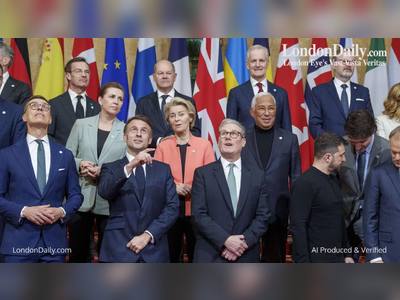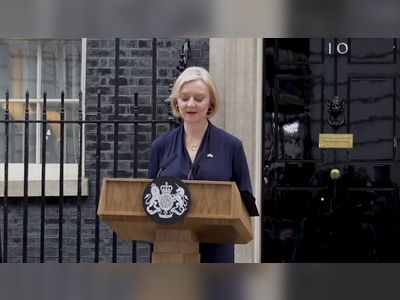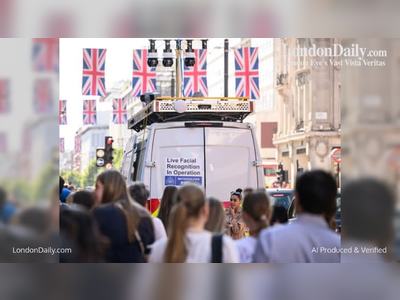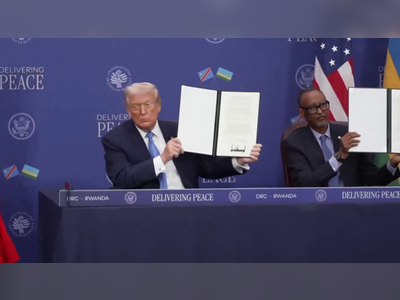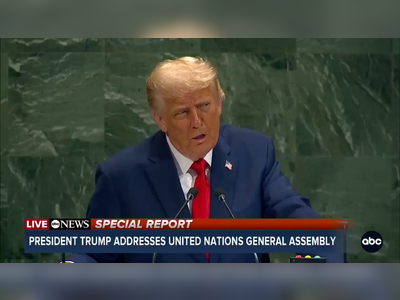UK Assessment Mis-Estimated Fallout From Palestine Action Ban, Records Reveal
Internal intelligence memo said public would ‘‘remain largely unconcerned’’ by proscription of protest group, yet mass arrests and significant protests followed
An internal “community impact assessment” prepared by the United Kingdom government and disclosed in recent months reveals that ministers and senior officials underestimated the depth of public reaction to the proscription of the pro-Palestinian protest group Palestine Action.
The paper, dated March 2025 and compiled by multiple government departments and policing authorities, informed the decision to ban the group under Britain’s terrorism law in July.
The assessment predicted that “much of the British public” would “remain largely unconcerned” by the ban and that most communities would view the measure positively.
It acknowledged some risk of opposition, particularly from Muslim communities, but failed to anticipate large-scale demonstrations and mass arrests that followed the proscription.
Since the ban took effect, more than 2,000 people have been arrested for displaying placards, wearing T-shirts or otherwise showing support for Palestine Action — conduct now treated as an offence under Section 13 of the Terrorism Act 2000. Protests organised by campaigners such as Defend Our Juries have featured mass sit-ins, with arrests at single events topping 800-plus individuals.
Police officials say the demonstrations and legal complexity are placing new strain on counter-terrorism resources.
The secret document also acknowledged that the group’s direct-action tactics might render it more visible, yet judged that only “some may view [its conduct] as part of legitimate protest”.
The analysis conceded the ban carried a risk of being seen as an infringement on civil liberties, but nonetheless concluded that it would “instil confidence” in the consistent application of terrorism laws.
Evidence cited included graffiti, sit-ins and damage to military-linked firms.
Yet a later audit by intelligence agencies found that a majority of Palestine Action’s 300-plus recorded incidents would not meet the statutory threshold for terrorism, a point now cited by the group’s legal challenge.
In a statement the UK government defended its move, saying the organisation had engaged in “escalating criminal damage” to defence infrastructure and that decisions on proscription were taken following “robust, evidence-based process”.
The legal challenge is expected to be heard in London’s High Court in the coming weeks, with questions set to hinge on the accuracy of the government’s predictions and its balancing of free-speech rights with national-security aims.
Home-office figures show the infrastructure of arrests and prosecutions under the new regime is expanding rapidly: police data indicate that enforcing the proscription has absorbed considerable manpower and diverted resources from other counter-terror work.
An official overseeing counter-terror policing told reporters this week that the measure had generated “a lot of noise in the system that risks detracting from our core mission”, citing the increase in arrests largely for symbolic acts.
The watchdog Equality and Human Rights Commission has raised concerns over heavy-handed policing of related protests, calling for clarity around the application of terrorism laws to peaceful activism.
With the government’s initial assumptions now in sharp contrast with unfolding events, the episode has already become a broader test of Britain’s approach to protest suppression, free speech and the limits of anti-terror powers in a climate of heightened international conflict and domestic dissent.
The paper, dated March 2025 and compiled by multiple government departments and policing authorities, informed the decision to ban the group under Britain’s terrorism law in July.
The assessment predicted that “much of the British public” would “remain largely unconcerned” by the ban and that most communities would view the measure positively.
It acknowledged some risk of opposition, particularly from Muslim communities, but failed to anticipate large-scale demonstrations and mass arrests that followed the proscription.
Since the ban took effect, more than 2,000 people have been arrested for displaying placards, wearing T-shirts or otherwise showing support for Palestine Action — conduct now treated as an offence under Section 13 of the Terrorism Act 2000. Protests organised by campaigners such as Defend Our Juries have featured mass sit-ins, with arrests at single events topping 800-plus individuals.
Police officials say the demonstrations and legal complexity are placing new strain on counter-terrorism resources.
The secret document also acknowledged that the group’s direct-action tactics might render it more visible, yet judged that only “some may view [its conduct] as part of legitimate protest”.
The analysis conceded the ban carried a risk of being seen as an infringement on civil liberties, but nonetheless concluded that it would “instil confidence” in the consistent application of terrorism laws.
Evidence cited included graffiti, sit-ins and damage to military-linked firms.
Yet a later audit by intelligence agencies found that a majority of Palestine Action’s 300-plus recorded incidents would not meet the statutory threshold for terrorism, a point now cited by the group’s legal challenge.
In a statement the UK government defended its move, saying the organisation had engaged in “escalating criminal damage” to defence infrastructure and that decisions on proscription were taken following “robust, evidence-based process”.
The legal challenge is expected to be heard in London’s High Court in the coming weeks, with questions set to hinge on the accuracy of the government’s predictions and its balancing of free-speech rights with national-security aims.
Home-office figures show the infrastructure of arrests and prosecutions under the new regime is expanding rapidly: police data indicate that enforcing the proscription has absorbed considerable manpower and diverted resources from other counter-terror work.
An official overseeing counter-terror policing told reporters this week that the measure had generated “a lot of noise in the system that risks detracting from our core mission”, citing the increase in arrests largely for symbolic acts.
The watchdog Equality and Human Rights Commission has raised concerns over heavy-handed policing of related protests, calling for clarity around the application of terrorism laws to peaceful activism.
With the government’s initial assumptions now in sharp contrast with unfolding events, the episode has already become a broader test of Britain’s approach to protest suppression, free speech and the limits of anti-terror powers in a climate of heightened international conflict and domestic dissent.


